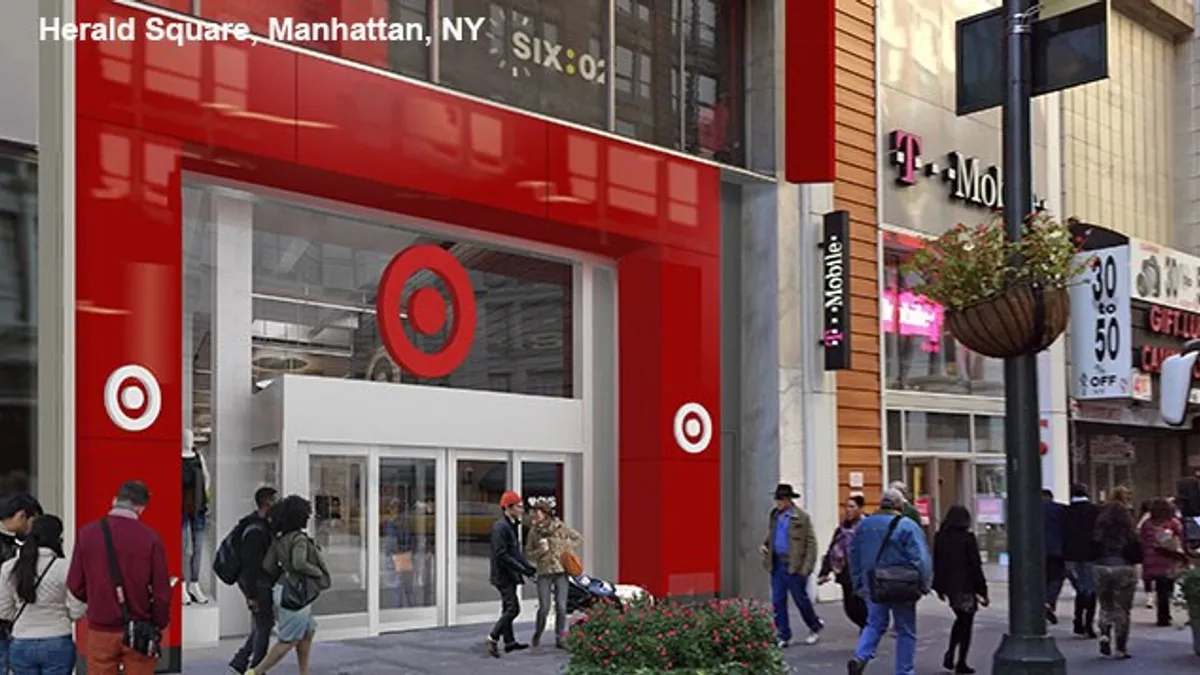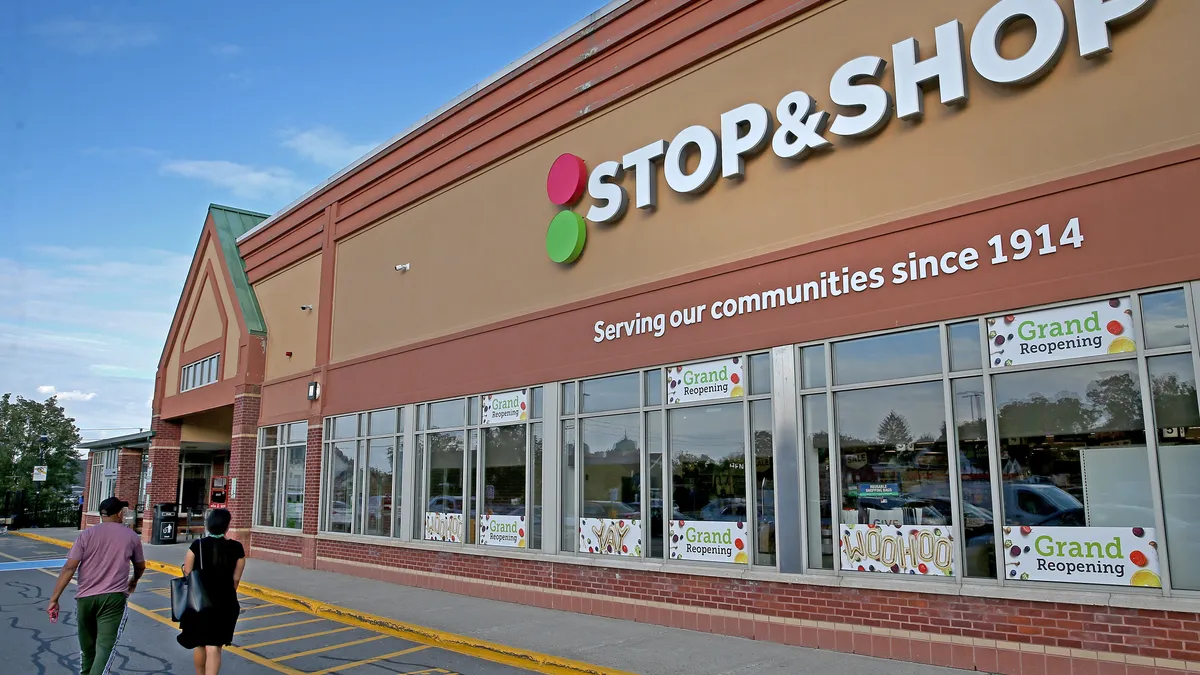Dive Brief:
- Target promised sweeping price cuts on thousands of grocery items and other consumables in a blog post written by chief merchandising officer Mark Tritton, according to CNBC. Target shares fell 3% Friday afternoon on the news.
- "We've spent months looking at our entire assortment, with a focus on offering the right price every day and simplifying our marketing ... all while maintaining sales we know are meaningful to guests," Tritton wrote on the Target blog.
- Target said it has not eliminated its product promotions, but said it will only focus on its most “compelling” items. "We’ve eliminated more than two-thirds of our price and offer call-outs so you can more easily spot the savings," the retailer said.
Dive Insight:
Target’s announcement came the same day Kroger reported a 7% drop in profit thanks to its own sweeping price cuts. As with the Cincinnati-based grocer, Wall Street dinged Target for the measure, which is sure to eat into the retailer’s gross margins, but stands to boost its market share.
Many analysts view sweeping price cuts as a necessary step for large retailers going up against Walmart, Amazon and discounters Aldi and Lidl. For months, Target had promised to slash prices on consumables even as it was upgrading its merchandise in other departments, such as home goods and apparel.
"In our view, [Target] is following its strategy to invest in price and is taking strides to improve its value perception and increase pricing clarity, which we view as significant opportunities for the retailer to grow trips, basket, and customer loyalty," Cowen & Co. analysts noted in an email sent to Retail Dive.
The question is, can Target offer more than just low prices on its grocery items and deliver growth over the long-term? The answer seems unclear at this point. Target’s fresh offerings have left much to be desired in recent years, with higher-than-average perishable losses and subpar store merchandising putting a damper on sales. Target’s recent earnings results show grocery was the only major division not to see comp sales increases.
The retailer is actively addressing the issue. It’s rolled out more organics and health-positioned products, and has made improvements to its supply chain so perishables are fresher and delivered more efficiently. Target also is redesigning stores around freshness and providing an experience-focused shopping trip. A store in the Minneapolis Nicollet Mall, for instance, includes more produce and grab-and-go items at the front of the store as well as LED lights, concrete flooring, more upbeat music and curved aisle ends.
Recent hires are also set to drive change in the struggling division. Back in March, Target hired Jeff Burt away from Kroger to become its head of grocery. Then last month, the company hired Mark Kenny from Walmart to oversee its meat, seafood, bakery and prepared foods departments; and Liz Nordlie, a former General Mills executive who will oversee private label branding and development.
Assuming these adjustments gain traction, Target still needs to address its grocery identity, which right now seems nonexistent. But the company has some compelling private label lines that are getting refreshed, and local sourcing in high-turn categories like beer and produce offer another point of distinction. With the pressure to stand out in a crowded market increasing, Target needs to not just improve its grocery operations, but figure out what its grocery assortment stands for.










